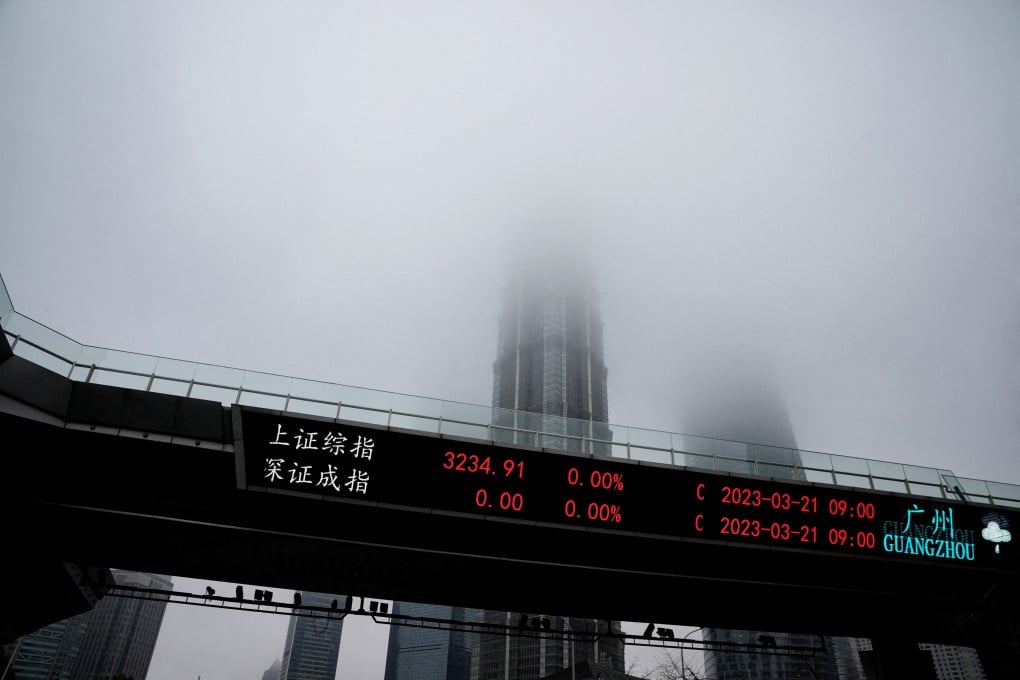Advertisement
China stocks advance in best week since July as property measures, factory report lift sentiment while typhoon hits Hong Kong market
- The CSI 300 Index registered the best week since July as Beijing delivered another round of easing measures to stem a property market slump
- The Caixin PMI manufacturing index climbed above 50 in August, signalling an expansion in activity
Reading Time:2 minutes
Why you can trust SCMP

Zhang Shidongin Shanghai
China’s stocks rose, driving the market to its biggest weekly gain since July after Beijing prodded banks to cut down payment and mortgage rates to revive consumption, while a private report showed manufacturing expanded. Trading in Hong Kong was halted because of a typhoon.
The CSI 300 Index advanced 0.7 per cent to 3,791.25 on Friday, culminating in a 2.2 per cent gain for the week. The Shanghai Composite Index added 0.4 per cent and Shenzhen Composite Index rose 0.3 per cent.
Hong Kong’s financial markets were shut after the Observatory issued storm warning No. 8 as Typhoon Saola approached within 100km of the city and kept the alert in force throughout Friday.
Advertisement
China Vanke gained 3 per cent to 14.05 yuan, leading gains among developers. Seazen Holdings rallied 2.2 per cent to 14.82 yuan and Poly Developments added 1.9 per cent to 14.25 yuan. China Merchants Bank led lenders higher, jumping 2.3 per cent to 32.27 yuan. Bank of Ningbo added 5.7 per cent to 27.67 yuan and Ping An Bank climbed 1.7 per cent to 11.32 yuan.
China lowered the minimum down payment ratio at 20 per cent for first-time homebuyers and 30 per cent for second-home purchasers, authorities said on late Thursday, while mortgage-rate cuts will be negotiated between banks and borrowers. Both measures will take effect from September 25.
Advertisement
Advertisement
Select Voice
Select Speed
1.00x
